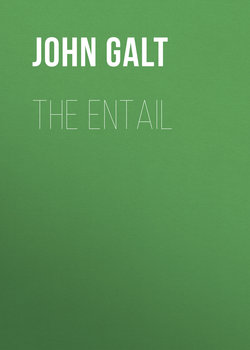Читать книгу The Entail - John Galt - Страница 12
CHAPTER X
ОглавлениеOn examining the Laird’s papers after the funeral, Mr. Keelevin, the father of the celebrated town-clerk of Gudetoun, the lawyer present on the occasion, discovered, in reading over the deed which had been executed by the deceased, in favour of Walter, the second son of Claud, that it was, in some essential points, imperfect as a deed of entail, though in other respects valid as a testamentary conveyance. The opinion of counsel, as in all similar cases, was in consequence forthwith taken; and the suspicions of Mr. Keelevin being confirmed, Walter was admitted as heir to the estate, but found under no legal obligation to assume his grandfather’s name, – the very obligation which the old gentleman had been most solicitous to impose upon him.
How it happened that the clause respecting so important a point should have been so inaccurately framed, remains for those gentlemen of the law, who commit such inadvertencies, to explain. The discovery had the effect of inducing Claud to apply to our old master, the late Gilbert Omit, writer, to examine the entail of the Grippy, which he had himself drawn up; and it too was found defective, and easily to be set aside. Really, when one considers how much some lawyers profit by their own mistakes, one might almost be tempted to do them the injustice to suspect that they now and then have an eye to futurity, and carve out work for themselves. There have, however, been discoveries of legal errors, which have occasioned more distress than this one; for, instead of giving the old man any uneasiness, he expressed the most perfect satisfaction on being informed, in answer to a plain question on the subject, that it was still in his power to disinherit his first-born. Well do we recollect the scene, being seated at the time on the opposite side of Mr. Omit’s desk, copying a codicil which Miss Christiana Heritage, then in her ninety-second year, was adding to her will, for the purpose of devising, as heir-looms, the bedstead and blankets in which Prince Charles Edward slept, when he passed the night in her house, after having levied that contribution on the loyal and godly city of Glasgow, for which the magistrates and council were afterwards so laudably indemnified by Parliament. We were not then quite so well versed in the secrets of human nature as experience has since so mournfully taught us, and the words of Claud at the time sounded strangely and harshly in our ear, especially when he inquired, with a sharp, and as it were a greedy voice, whether it was practicable to get Walter to conjoin with him in a deed that would unite his inheritance of Plealands to the Grippy, and thereby make a property as broad and good as the ancestral estate of Kittlestonheugh?
‘Ye ken, Mr. Omit,’ said he, ‘how I was defrauded, as a bodie may say, of my patrimony, by my grandfather; and now, since it has pleased Providence to put it in my power, by joining the heritage of Plealands and Grippy, to renew my ancestry, I would fain mak a settlement with Watty to that effek.’
Mr. Omit, with all that calm and methodical manner which a long experience of those devices of the heart, to which lawyers in good practice, if at all men of observation, generally attain, replied, —
‘Nothing can be done in that way while Walter is under age. But certainly, when the lad comes to majority, if he be then so inclined, there is no legal impediment in the way of such an arrangement; the matter, however, would require to be well considered, for it would be an unco-like thing to hear of a man cutting off his first-born for no fault, but only because he could constitute a larger inheritance by giving a preference to his second.’
Whatever impression this admonitory remark made on the mind of Claud at the moment, nothing further took place at that time; but he thoughtfully gathered his papers together, and, tying them up with a string, walked away from the office, and returned to Grippy, where he was not a little surprised to see Mr. Allan Dreghorn’s wooden coach at the door; the first four-wheeled gentleman’s carriage started in Glasgow, and which, according to the praiseworthy history of Bailie Cleland, was made by Mr. Dreghorn’s own workmen, he being a timber merchant, carpenter, and joiner. It was borrowed for the day by Mr. and Mrs. Kilfuddy, who were then in Glasgow, and who, in consequence of their parochial connexion with the Plealands family, had deemed it right and proper to pay the Leddy of Grippy a visit of sympathy and condolence, on account of the loss she had sustained in her father.
